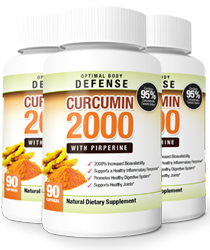Page Menu
Inflammation is a natural response to injury or infection. However, when inflammation becomes chronic, it can lead to a host of health problems. Chronic inflammation is often the result of lifestyle factors, such as smoking, obesity, and lack of exercise. It can also be caused by exposure to environmental toxins, such as air pollution. In many cases, inflammation can be controlled or even reversed with the help of anti-inflammatory supplements and therapies.
Key Concepts and Top Takeaways
– Incorporate anti-inflammatory foods like berries, fatty fish, and leafy greens.
– Limit processed foods, sugars, and trans fats in your diet.
– Stay hydrated by drinking plenty of water daily.
– Maintain a healthy weight to reduce inflammation risk.
– Engage in regular physical activity for at least 30 minutes most days.
– Manage stress through mindfulness practices or yoga.
– Get enough sleep each night to support overall health.
– Avoid smoking and limit alcohol consumption to reduce inflammation.
– Consider supplements like omega-3 fatty acids after consulting a doctor.
– Monitor symptoms and seek medical advice for persistent inflammation issues.
Please Note: This post may contain affiliate links. If you click one of them, we may receive a commission at no extra cost to you. As an Amazon Associate, I earn from qualifying purchases.

When you have a fever, your body is trying to fight an infection. The fever is the body's way of raising its internal temperature so that the infection-fighting cells (white blood cells) can work better. Sometimes the body's immune system can overreact and cause inflammation in healthy tissue. This is what happens when you have a fever, your body's immune system is overactive and causing inflammation in your healthy tissue.
The immune system is responsible for fighting infection and repairing damage to the body. When the immune system becomes overactive or confused it can cause inflammation. This occurs when white blood cells, chemicals, and proteins accumulate in the affected area. Inflammation can be localized, such as a cut on your finger, or it can be systemic, affecting multiple organs. Symptoms of inflammation vary depending on its location and severity. The most common symptoms are pain, redness, heat, swelling, and loss of function.
There are many different causes of inflammation. Some examples are infections, injuries, autoimmune diseases, cancer, and smoking. Many factors contribute to the development of inflammation including genetics, lifestyle choices, and environmental exposures.
There are many different treatments for inflammation, depending on its cause. One popular supplement that you could try is Curcumin 2000 with Piperine.
What Is Inflammation?
Inflammation is a response of the body to injury. It is a way for the body to heal itself. The body sends white blood cells and other chemicals to the area to help fight infection and promote healing. Inflammation can cause swelling, pain, and redness.
Inflammation is a bodily response to injury or infection that results in swelling, redness, heat, and pain. The purpose of inflammation is to protect the body and help it heal. The three main types of cells involved in inflammation are white blood cells, mast cells, and macrophages.
What Are the Causes of Inflammation?
The causes of inflammation are when the body's immune system goes into overdrive and starts attacking healthy tissues. This is often because of a sickness, like a cold or the flu, but it can also be from an injury. When this happens, the body releases chemicals called cytokines. These cytokines cause inflammation, which is why your arm might swell up after you bang it on the door.
There are many causes of inflammation, some of which are still unknown. However, there are some known causes of inflammation that include: infection, injury, autoimmune diseases, and cancer. Each of these can cause the body to produce proteins called cytokines, which trigger the inflammatory response.
What Are the Symptoms of Inflammation?
When you have a fever, your body is trying to fight off an infection. The fever is one of the symptoms of inflammation. When you have inflammation, your body is also trying to fight off an infection or heal a wound. Fever, redness, swelling, and pain are all common symptoms of inflammation.
There are many different symptoms associated with inflammation, which can make it difficult to diagnose. Some of the most common symptoms include fever, pain, redness, swelling, and loss of function. However, each person may experience inflammation differently, so it is important to be aware of your own individual symptoms.
If you are experiencing any of the following symptoms, you may have inflammation: fever over 100 degrees Fahrenheit, severe pain that does not improve with medication, redness that does not go away after a few days, swelling in one area for more than a week, or loss of function in a body part. If you are concerned that you may have inflammation, it is important to consult with a healthcare professional.
What Are the Best Anti-Inflammatory Foods to Eat?
 Some good anti-inflammatory foods to eat are vegetables like broccoli and tomatoes. Other good options are fruits like blueberries and oranges. Fish like salmon and tuna are also good anti-inflammatory foods. Finally, nuts like almonds and pistachios are excellent choices.
Some good anti-inflammatory foods to eat are vegetables like broccoli and tomatoes. Other good options are fruits like blueberries and oranges. Fish like salmon and tuna are also good anti-inflammatory foods. Finally, nuts like almonds and pistachios are excellent choices.
The best anti-inflammatory foods to eat are those that are low in sugar and high in fiber. These include fruits and vegetables like berries, apples, and broccoli. They also include whole grains like oats and quinoa. These foods help to reduce inflammation in the body and keep us healthy.
When you are experiencing inflammation, your body is trying to tell you that something is wrong. It could be a sign of infection, injury, or autoimmune disease. While inflammation is necessary for healing, chronic inflammation can lead to health problems. You can reduce your risk of disease by eating anti-inflammatory foods.
There are many types of anti-inflammatory foods, but some of the best include omega-3 fatty acids, antioxidants, and polyphenols. Omega-3 fatty acids are found in salmon and other cold-water fish, as well as walnuts and flaxseeds. Antioxidants are found in colorful fruits and vegetables like berries, tomatoes, and bell peppers. Polyphenols are found in tea, red wine, and cocoa.
What Are the Anti-Inflammatory Foods to Avoid?
Some foods can cause inflammation in the body, which can lead to pain and other problems. To avoid these foods, try to eat a healthy diet with plenty of fruits and vegetables. Some good anti-inflammatory foods include broccoli, blueberries, and salmon.
There are many anti-inflammatory foods to choose from, but there are also some that you should avoid. Some of the worst offenders are processed meats, sugary drinks, and artificial sweeteners. Processed meats are high in unhealthy fats and sodium, which can trigger inflammation. Sugar-sweetened drinks and artificial sweeteners can also cause inflammation, as well as other health problems. Instead, opt for fresh fruits and vegetables, whole grains, lean protein, and healthy fats like olive oil or avocado. These foods will help keep your inflammation levels in check and promote a healthy body weight.
How Can You Reduce Inflammation Naturally?
There are many different things that people can do to reduce inflammation naturally. Some people might choose to eat healthy foods that are known to help reduce inflammation, like fruits and vegetables. Others might choose to exercise regularly, which can also help reduce inflammation. Some people might use natural supplements or essential oils to help reduce inflammation, and others might choose to practice stress-relieving techniques like yoga or meditation.
One way to reduce inflammation naturally is to eat foods that are anti-inflammatory, such as fruits and vegetables. You can also try taking supplements, like fish oil or turmeric, that have anti-inflammatory properties. Additionally, you can exercise regularly to help reduce inflammation throughout your body. Finally, you can try using essential oils like lavender or eucalyptus oil, which have anti-inflammatory properties.
Almost everyone has experienced inflammation, whether it’s from a cut on your finger, a swollen ankle after a long day of walking, or that feeling of being stuffed up and congested during a cold. Inflammation is our body’s natural response to injury or infection, and is characterized by swelling, redness, heat, and pain. While many cases of inflammation are benign and go away on their own, chronic inflammation can lead to more serious health problems. Thankfully, there are several ways you can reduce inflammation naturally.
One way to reduce inflammation is to eat an anti-inflammatory diet. This means eating plenty of fruits and vegetables as well as lean protein and healthy fats.
Lifestyle Changes to Reduce Inflammation
If you have a sore throat, you take medicine to make it feel better. If you have a headache, you take medicine to make it feel better. If your body is sore, you can take medicine to help make it feel better too. Taking medicine is one way to reduce inflammation.
Another way to reduce inflammation is by making lifestyle changes. This means making changes to the way you live your life in order to help your body feel better.
If you have a headache, you might take some ibuprofen to help it go away. Ibuprofen is a type of medicine that helps to reduce inflammation. Sometimes, when people have a lot of inflammation in their body, they might need to make some lifestyle changes to help reduce it. This could mean eating healthier foods, exercising more, or taking different medicines.
Reducing inflammation doesn't have to be difficult, but it does require some effort. Making a few simple lifestyle changes can help reduce inflammation and improve your overall health. Here are a few tips to get started:
1. Eat a healthy diet. Eating plenty of fruits, vegetables, and whole grains can help reduce inflammation and promote good health. Make sure to avoid processed foods and sugary drinks, which can contribute to inflammation.
2. Get regular exercise. Exercise is important for overall health and can help reduce inflammation. Aim for at least 30 minutes of moderate exercise most days of the week.
3. Reduce stress levels. Stress can contribute to inflammation, so it's important to find ways to manage stress effectively. Meditation, yoga, or deep breathing exercises can be helpful tools for reducing stress levels.
Common Questions About Inflammation
How can I get rid of inflammation fast? There are many ways that you can get rid of inflammation fast. One way is to take over the counter medications, such as ibuprofen or aspirin. These medications will help to reduce the inflammation in your body. Another way to get rid of inflammation fast is to take prescription medications, such as prednisone. Prednisone is a medication that is used to treat inflammation. It is important to talk to your doctor before taking prednisone, because it can have some side effects. A third way to get rid of inflammation fast is to use natural remedies, such as turmeric or ginger. These herbs help to reduce inflammation in the body.
What are the classic signs of inflammation? Inflammation is a process that your body uses to protect itself from infection or injury. It's marked by redness, warmth, swelling, and pain. The classic signs of inflammation are redness, swelling, heat, and pain.
What causes inflammation? There are many causes of inflammation, including infection, injury, and autoimmune diseases. The body's immune system response is responsible for inflammation. When the body is injured or infected, white blood cells called neutrophils and macrophages rush to the area to fight the infection. These cells release chemicals that cause inflammation.
Is ibuprofen good for inflammation? Ibuprofen is a medication that is often used to treat pain and inflammation. It is available over the counter and can be purchased without a prescription. Ibuprofen is a nonsteroidal anti-inflammatory drug, or NSAID. This means that it works by reducing inflammation in the body. Ibuprofen is effective at treating pain and inflammation caused by a variety of conditions, such as arthritis, menstrual cramps, and headaches. Ibuprofen can also be used to reduce fever.
Is coffee anti-inflammatory? Yes, coffee is anti-inflammatory. Coffee has been shown to decrease inflammation in the body, which is why it's often recommended for people who are struggling with conditions like arthritis. Coffee also contains antioxidants, which can help to fight inflammation and protect the body from damage.
What are the signs of inflammation? Inflammation is a natural process that the body uses to protect itself from infection or injury. It is a response of the immune system that causes swelling, pain, and redness. The goal of inflammation is to clear the area of foreign invaders or damaged cells and start the healing process.
There are many signs of inflammation, depending on where it is occurring in the body.
Does drinking water reduce inflammation? There is some evidence to suggest that drinking water can help reduce inflammation, although more research is needed in this area. One study found that people who drank two liters of water per day for eight weeks had lower levels of C-reactive protein (a marker of inflammation) than those who didn't drink as much water. Another study showed that women who drank more water had lower levels of inflammatory markers, such as interleukin-6 (IL-6) and tumor necrosis factor-alpha (TNF-alpha), than women who drank less water. Drinking plenty of fluids may also help protect against kidney stones, which are associated with high levels of inflammation.
What are the 3 stages of inflammation? The three stages of inflammation are:
1. Acute inflammation: This is the initial stage of inflammation, and it is marked by an influx of white blood cells to the area of injury. These cells produce enzymes that help to clear away debris and damaged tissue. The goal of this stage is to restore the tissue to its original state.
2. Chronic inflammation: If the injury does not heal properly, chronic inflammation may develop. This stage is characterized by a continued infiltration of white blood cells, as well as an increase in cytokines and other inflammatory mediators. These substances can damage the surrounding tissue, leading to chronic pain and other symptoms.
3. End-stage inflammation: In some cases, chronic inflammation may progress to end-stage inflammation.
Which painkiller is anti-inflammatory? There are a variety of painkillers on the market that are designed to help manage different types of pain, but which one is anti-inflammatory? Ibuprofen and naproxen are both over-the-counter medications that are used to treat pain and inflammation. They work by blocking the production of prostaglandins, which are chemicals that contribute to inflammation. Aspirin is also an anti-inflammatory medication, but it needs to be prescribed by a doctor.
Are there any anti inflammatories that are not NSAIDs? There are a few anti inflammatories that are not NSAIDs. Acetaminophen is one such medication. It is a pain reliever and fever reducer that does not have the same risks as NSAIDs. Another option is aspirin. Aspirin is also a pain reliever and fever reducer, but it also has anti-clotting properties.
Are bananas inflammatory? Bananas are a popular fruit that many people enjoy. But are they inflammatory? The answer is not entirely clear. Some people believe that bananas can cause inflammation, while others claim that they have anti-inflammatory properties. More research is needed to determine whether or not bananas are inflammatory. Some potential reasons why people might think that bananas are inflammatory include the fact that they are a high-carbohydrate food and they contain sugar. Additionally, some people believe that the skin of a banana can cause an allergic reaction in some people.
Is Honey inflammatory? There is a lot of discussion these days about whether honey is inflammatory. Some people say that it is, while others maintain that it’s not. The truth is, there’s no definitive answer to this question. Honey does have some properties that could make it potentially inflammatory for some people, but it also has some health benefits that could outweigh any potential inflammation. So, the bottom line is that it’s probably best to avoid honey if you know that you are especially sensitive to inflammation, but otherwise, there’s no harm in including it in your diet.
Are eggs anti-inflammatory? There is a lot of talk about eggs and their health benefits. Some people say that eggs are inflammatory, while others claim that they are anti-inflammatory. So, what’s the truth?
The answer to that question is a little complicated. The truth is that eggs can be either anti-inflammatory or inflammatory, depending on the person’s individual body chemistry. For some people, eggs can help to reduce inflammation, while for others, they can actually cause inflammation.
So, if you’re wondering whether or not eggs are good for you, the best thing to do is to test them out and see how your body reacts. If you experience any negative side effects after eating eggs, then it’s probably best to avoid them.
Is apple cider vinegar good for inflammation? Apple cider vinegar is a type of vinegar that is made from apples. Some people believe that apple cider vinegar can help reduce inflammation. There is some evidence that apple cider vinegar may help reduce inflammation, but more studies are needed to confirm this. Apple cider vinegar may also help improve blood sugar control in people with diabetes.
What does inflammation pain feel like? Inflammation pain can feel different for everyone. For some, it may feel like a deep, throbbing sensation. Others may experience a burning sensation. Some people may feel like they have a sharp object stuck in their side. The pain can be constant, or it can come and go. It may be worse when you move or when you breathe deeply.
How long does it take inflammation to go away? Inflammation is the body's response to injury. It is a natural process that helps the body heal. Inflammation can cause pain, redness, swelling, and heat. It can last for a few days or a few weeks. Some inflammation lasts longer than others. In some cases, it can last for months or even years. There is no one answer to how long it takes inflammation to go away. It depends on the cause of the inflammation and the individual's body. Some things that can affect how long it takes inflammation to go away are age, health, genetics, and lifestyle choices.
Does lemon water help with inflammation? Lemon water has been making headlines as a trendy drink to help with weight loss and detox, but does it really have any benefits? Some claim that lemon water helps with inflammation, but there is little scientific evidence to support this. One study showed that lemon juice had anti-inflammatory effects in rats, but it's not clear if the same effects would be seen in humans.
Despite the lack of concrete evidence, there are some reasons why lemon water might help with inflammation. Lemons are high in Vitamin C, which is known for its anti-inflammatory properties. They also contain flavonoids and antioxidants, which can help fight inflammation. Plus, drinking warm lemon water first thing in the morning helps kick-start your digestive system and get your metabolism going.
How do you test for inflammation? Inflammation is a natural response that your body has to injury or infection. It helps protect you from further harm and promotes healing. However, when inflammation persists unnecessarily, it can lead to health problems. So how do you know if you have inflammation? There are a few different ways to test for inflammation, depending on what’s causing it.
One way to test for inflammation is with a blood test. This test measures the level of C-reactive protein (CRP) in your blood. CRP is a marker of inflammation that rises when there is active inflammation in the body. A high level of CRP can indicate that you have an inflammatory condition, such as arthritis, asthma, or heart disease.
Another way to test for inflammation is with a saliva test. This test measures the level of cortisol in your saliva.
What does an inflammation rash look like? An inflammation rash is a common skin condition that causes the skin to become red, swollen, and itchy. The rash can be caused by a number of factors, such as allergies, infection, or autoimmune disorder.
What's the difference between swelling and inflammation? Swelling and inflammation are both common responses to injury, but they are not the same thing. Swelling is the accumulation of fluid in tissues, while inflammation is a response to injury that occurs when white blood cells and other immune factors enter the area. Swelling is usually more pronounced than inflammation, and it can cause pain and difficulty moving the affected body part. Inflammation is usually less noticeable than swelling, and it rarely causes pain. Swelling usually resolves on its own, but inflammation can persist for weeks or months after an injury has healed.
Do you ice inflammation? There is a lot of debate on whether or not to ice an injury. Icing can help reduce inflammation, which is why many people recommend it. However, there is some evidence that icing can actually delay healing. So, what’s the right answer? Should you ice an injury?
There are pros and cons to both sides of the argument. On one hand, icing can help reduce inflammation, which is beneficial in the early stages of healing. It can also help relieve pain. On the other hand, icing can actually delay healing by interrupting the natural process of inflammation. Additionally, if done incorrectly, icing can cause further damage to the injured area.
So, what’s the verdict? In most cases, it’s probably best to err on the side of caution and not ice an injury.
In conclusion, inflammation is a natural response that helps the body heal, but it can also become chronic if not treated. There are many causes of inflammation, and some common symptoms include pain, redness, swelling, and heat. There are many ways to support the body's anti-inflammatory response, including lifestyle changes, supplements, and herbs. By following these steps, you can help reduce inflammation and improve your overall health.

Kevin Collier is a seasoned health writer at Otchut.com, specializing in over-the-counter medicines, common medical ailments, and general health topics. With a background in healthcare and a passion for making medical information accessible, Kevin aims to empower readers with knowledge to make informed health decisions. When he's not writing, he enjoys researching the latest in health trends and advocating for wellness in his community.






